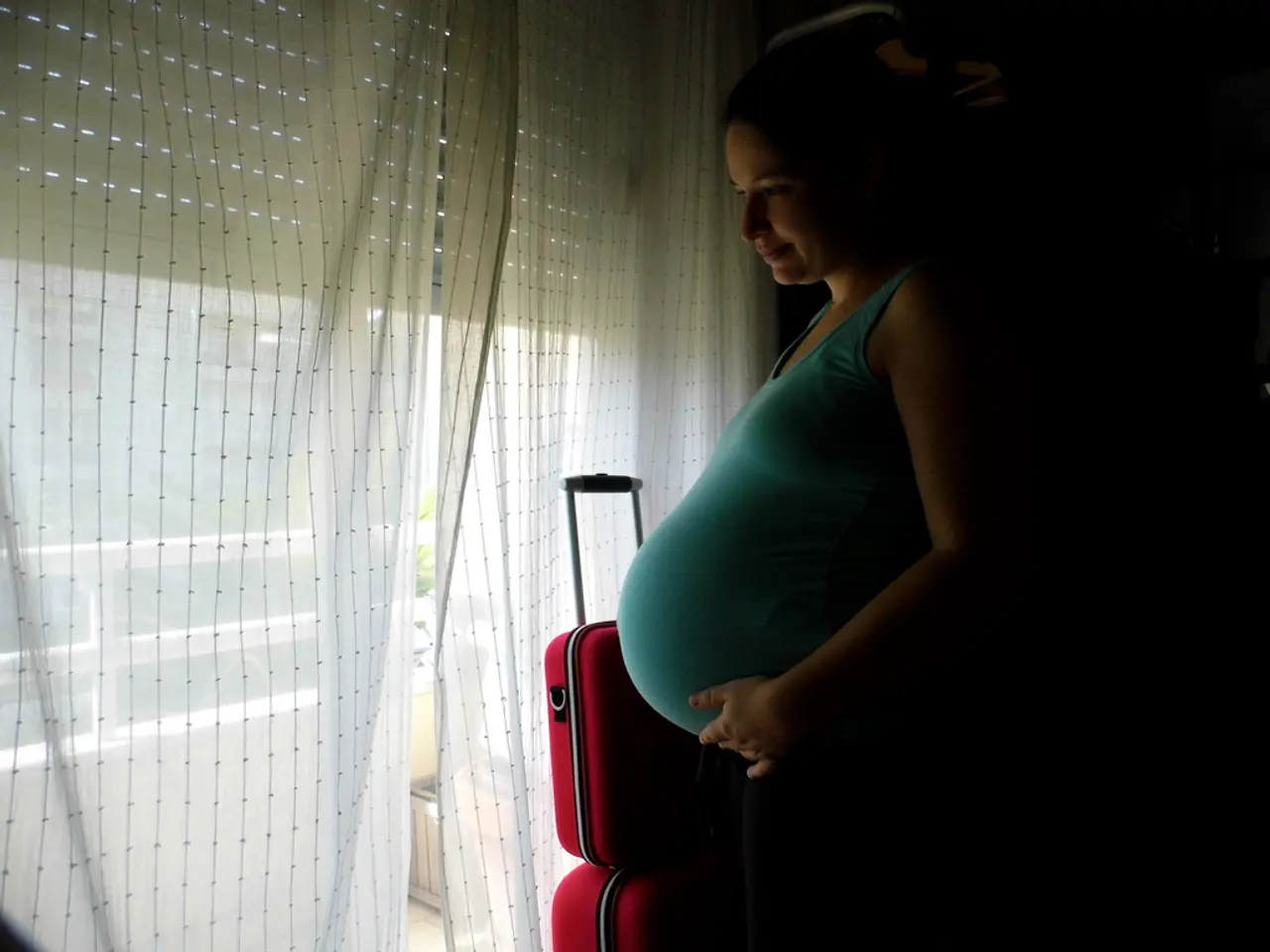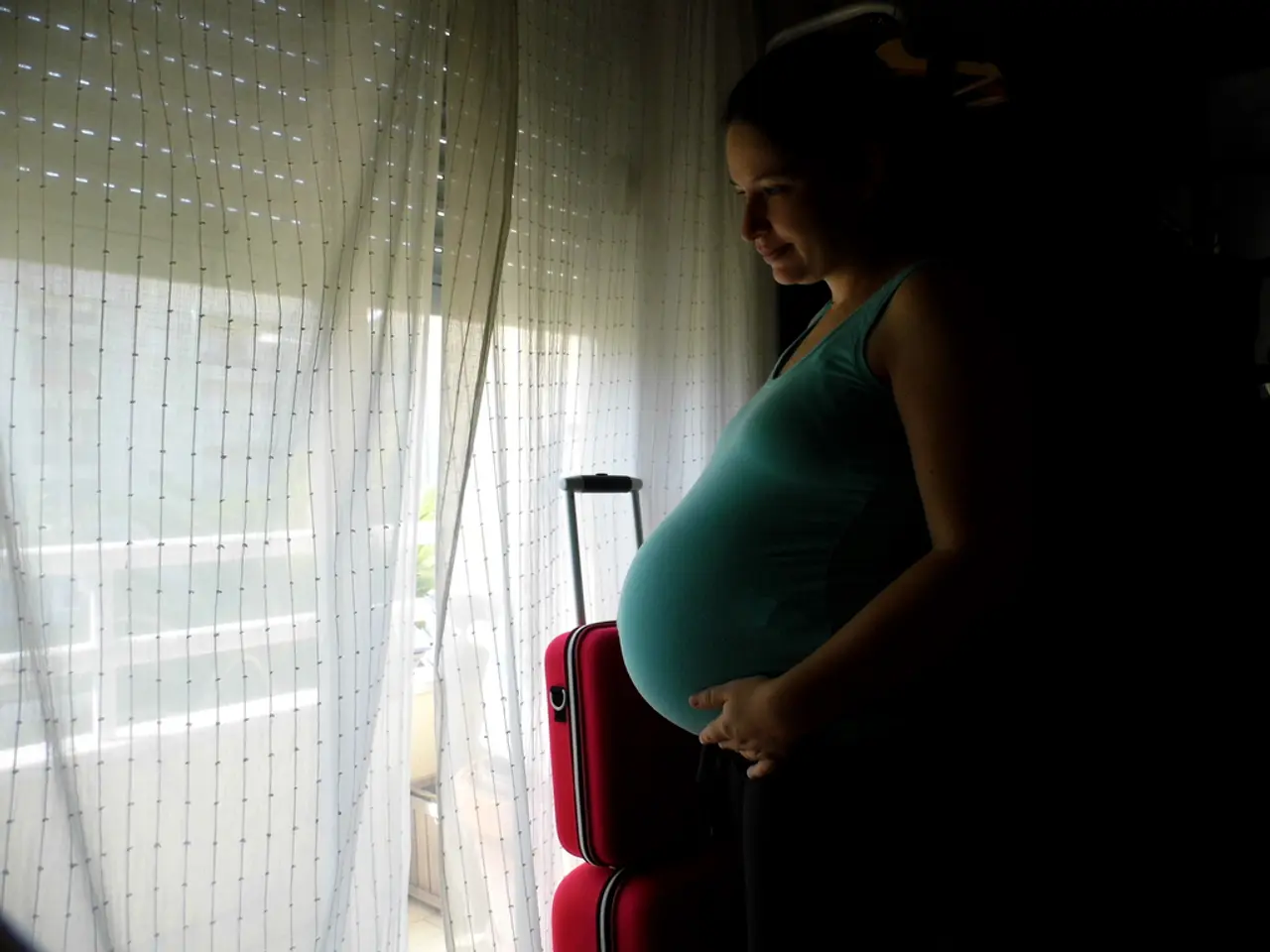Pregnancy-related chest discomfort or pain experienced by expectant mothers.
In pregnancy, chest pain is often a common concern for expecting mothers. However, most cases of chest pain are minor and can be managed at home with simple lifestyle changes and home remedies. Here's a guide to the most common minor causes of chest pain during pregnancy and how to manage them.
## Common Minor Causes
1. **Indigestion and Heartburn** - Description: Hormonal changes, particularly increased progesterone, and the growing fetus pressing on the stomach can lead to acid reflux or heartburn, resulting in a burning sensation or pain in the chest. - Management: Eating smaller, more frequent meals; avoiding spicy, fatty, or acidic foods; and not lying down immediately after eating can help alleviate symptoms. Over-the-counter antacids may be used if approved by your healthcare provider.
2. **Muscle Strain or Costochondritis** - Description: The ligaments and cartilage around the rib cage can become inflamed due to hormonal changes, posture shifts, or increased mechanical strain. This condition, known as costochondritis, causes sharp or pressure-like chest pain, especially with movement or breathing. - Management: Rest, gentle stretching, warm compresses, and avoiding heavy lifting. Over-the-counter pain relievers (like acetaminophen) may be used if recommended by a healthcare provider.
3. **Anxiety** - Description: Anxiety is common in pregnancy and can manifest as chest pain or tightness, sometimes associated with palpitations or shortness of breath. - Management: Relaxation techniques such as meditation, yoga, or deep breathing exercises can help manage anxiety. Psychotherapy or counseling may be helpful if anxiety is persistent or severe.
## Additional Considerations
- **Posture and Physical Strain:** Shifting center of gravity and changes in posture during pregnancy can strain chest and back muscles, leading to discomfort. Gentle exercise and maintaining good posture can help. - **Infection:** While chest infections can cause chest pain, they are less common and often associated with symptoms like fever or cough. Mild infections should be evaluated and treated by a healthcare provider.
## When to Seek Medical Attention
While most chest pain in pregnancy is minor and can be managed at home, seek immediate medical attention if chest pain is severe, persistent, or accompanied by symptoms such as: - Difficulty breathing - Rapid or irregular heartbeat - Severe dizziness or fainting - Profuse sweating - Pain radiating to the arm, neck, or jaw
These symptoms could indicate a serious condition such as a heart problem or pulmonary embolism.
## Summary Table
| Cause | Description | Management Tips | |---------------------|------------------------------------------------|----------------------------------------| | Indigestion/Heartburn | Burning chest pain due to reflux | Small meals, avoid triggers, antacids | | Costochondritis | Sharp pain from cartilage inflammation | Rest, warm compresses, gentle exercise | | Anxiety | Chest tightness due to stress | Relaxation, counseling, breathing |
These minor causes can often be managed with lifestyle changes and, if necessary, medical advice. Always discuss new or worsening symptoms with your healthcare provider.
It's important to note that a heart attack is a relatively uncommon cause of chest pain during pregnancy. However, if you experience symptoms of a heart attack, such as chest pain or discomfort, shortness of breath, cold sweats, lightheadedness, nausea, discomfort or pain in the jaw, neck, stomach, back, or in one or both arms, seek immediate medical attention.
[1] American Pregnancy Association. (2021). Chest Pain During Pregnancy. Retrieved from https://americanpregnancy.org/pregnancy-complications/chest-pain-during-pregnancy/ [2] Mayo Clinic. (2021). Chest pain during pregnancy. Retrieved from https://www.mayoclinic.org/healthy-lifestyle/pregnancy-week-by-week/expert-answers/chest-pain-during-pregnancy/faq-20058310 [3] National Heart, Lung, and Blood Institute. (2021). Heart Attack. Retrieved from https://www.nhlbi.nih.gov/health-topics/heart-attack [4] American College of Obstetricians and Gynecologists. (2020). Exercise During Pregnancy and the Postpartum Period. Retrieved from https://www.acog.org/womens-health/faqs/exercise-during-pregnancy-and-the-postpartum-period
- Pregnancy can cause various health-and-wellness issues, and bipolar disease is not typically associated with it.
- Breast disease, such as breast cancer, often requires regular screenings and may require medical-treatments.
- Heartburn, a common minor cause of chest pain in pregnancy, can be managed through dietary changes and over-the-counter medications.
- Heartattack is a serious cardiovascular-health concern that while uncommon in pregnancy, should be promptly addressed if symptoms occur.
- Colitis, an inflammatory bowel disease like Crohn's, rarely affects pregnant women but may require therapeutic intervention.
- Dermatitis, a skin condition, usually does not pose a significant risk to pregnancy, but atopic dermatitis may require specialized care.
- Predictive models can help assess the risk of other heart diseases during pregnancy, though regular check-ups remain crucial.
- Hypertension, or high blood pressure, can impact both mother and child, so monitoring blood pressure throughout pregnancy is essential.
- Cancer, while not directly linked to chest pain in pregnancy, may require adjustments in treatment due to pregnancy.
- Pregnant women should be aware of theirpregnancy's impact on their mental-health and seek appropriate counseling or therapies-and-treatments if needed.
- Ulcerative colitis, like other chronic-diseases, may require management adjustments during pregnancy.
- AQ, or environmental air quality, can pose risks to both mother and child, so pregnant women should take necessary precautions to minimize exposure to pollutants.
- Obesity during pregnancy can lead to complications like gestational diabetes and hypertension, so maintaining a balanced fitness-and-exercise routine is advisable.
- Blocked arteries, a risk factor for heart disease, are typically not related to chest pain in pregnancy but can be screened for during routine prenatal care.
- Chest pain can also result from conditions like asthma, which requires management to ensure a healthy pregnancy.
- Alzheimers disease, a neurodegenerative disorder, is not typically a concern during pregnancy, but women of childbearing age should still be aware of the risks and symptoms.
- Pfizer, a pharmaceutical company, produces various drugs that may be used to manage conditions during pregnancy, such as heartburn or anxiety, but safety and efficacy should always be discussed with a healthcare provider.




